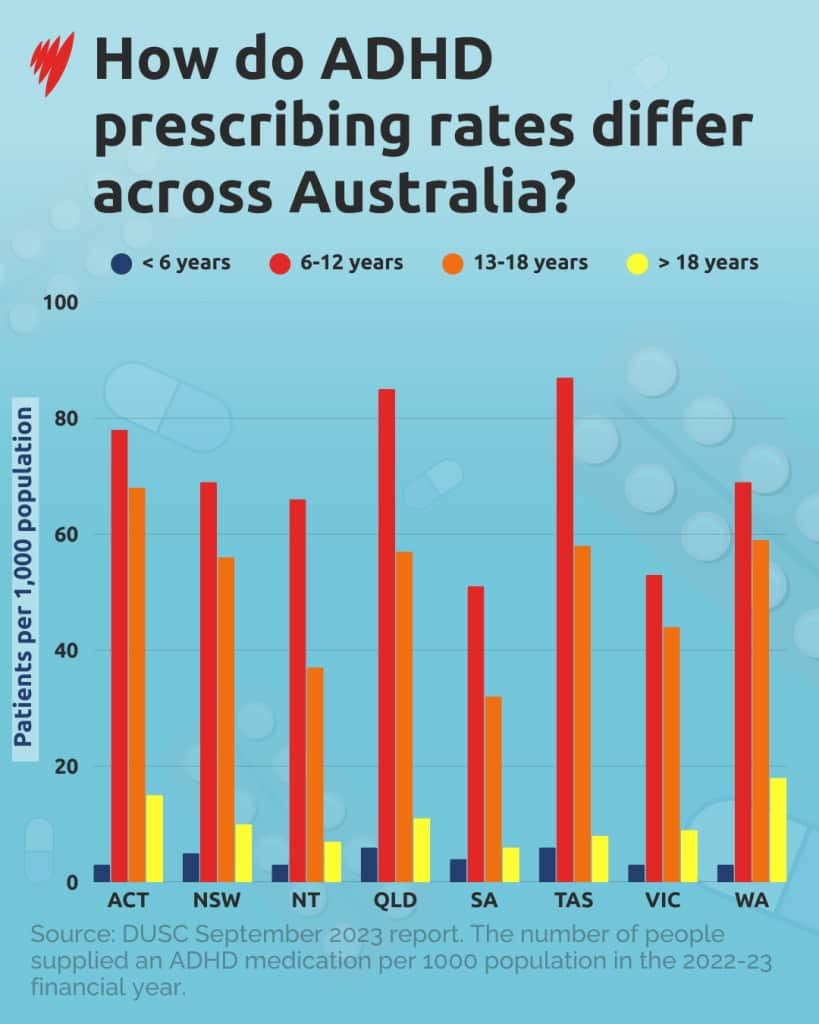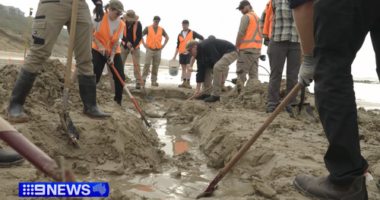Share this @internewscast.com
Altman’s experiences highlight a larger problem in Australia’s ADHD diagnosis and treatment landscape: Despite increased awareness and demand, the system is struggling to keep up, with some states trailing behind.

Zac Altman says he would never have founded his ADHD telehealth business if he hadn’t struggled with the diagnosis process himself. Source: Supplied
A postcode lottery
Although there are no Australian adult prevalence studies for ADHD using the latest DSM-5 criteria, research suggests that ADHD prevalence in Australia likely matches international figures — estimated between 2 and 6 per cent of the population, according to the Australasian ADHD Professionals Association.

Rates of prescribing vary across states and territories, reflecting the different jurisdictional laws about stimulant prescribing. Source: SBS News
Additionally, the federal government’s Drug Utilisation Sub Committee September 2023 report found differences in the rates of prescribing across states and territories, which the report says reflects different laws across jurisdictions.
“Expecting every psychiatrist to know each nuance across the country seems unrealistic… which is why I believe we should implement a national standard for these matters,” he stated.
A patchwork system with no national rules
The inquiry heard that of those who did have positive experiences of ADHD assessment and diagnosis, “many attributed their experience to luck” or to doctors and psychiatrists who helped them access services.
The ADHD Foundation said it had observed some professionals charge up to $5,000 for assessments.
‘Kantoko wouldn’t exist if Australia nailed it’
“Kantoko wouldn’t exist if Australia had nailed it,” Altman said. “I wouldn’t have gotten so frustrated that I started this business and embarked on this journey if it were easy-to-access and affordable.”
The Canberra and Queanbeyan ADHD Support Group, a volunteer-run local group, said the clinics offered “exceedingly high fees delivering a quick turnaround” with concerns of “price gouging”.
The GP debate: solving shortages or lowering the bar?
While some say it could ease bottlenecks and encourage holistic care, others warn it risks lowering the standards of care.
“This creates a tension between reducing waitlists with more GP involvement on the one hand, but on the other hand, accepting that GP ADHD management may not have the nuance of specialist management.”
She criticised current restrictions requiring specialist endorsement and fixed dosage limits, arguing they undermine both patient autonomy and the ability of GPs to tailor care.












